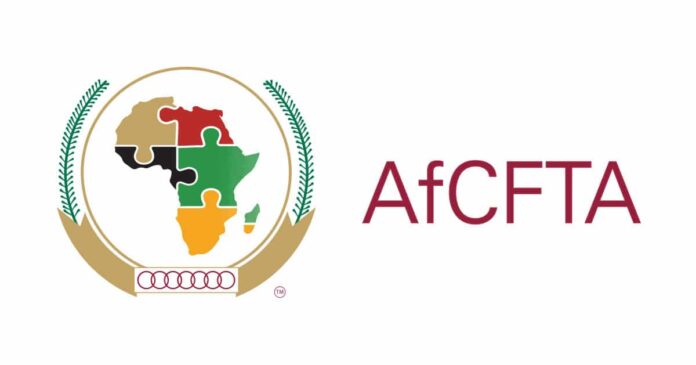Poor regional connectivity, persistent multiple checkpoints, manual documentation processes, and widespread extortion, among others, have continued to make the cost of moving goods along regional trade routes among the highest in the world and are undermining industrial competitiveness and revenue generation under the African Continental Free Trade Area.
Data for trade facilitation in the region, presented by the Chief Executive Officer of the Centre for the Promotion of Private Enterprise, Dr Muda Yusuf, recently at the sub-regional seminar and meeting of the Standing Committee No. 1 on Trade and Transport under the Union of African Shippers’ Council, identified the Abidjan–Lagos corridor, spanning Ivory Coast, Ghana, Togo, Benin, and Nigeria, as the most problematic trade route on the continent in terms of congestion, delays, and informal costs.
Yusuf released the data when he presented a paper titled “Trade Facilitation Measures to Reduce Cost and Enhance Transport Connectivity in West and Central Africa”.
According to him, the corridor, stretching 1,080 kilometres, handles over 50 million tonnes of freight and over five million vehicle traffic volume yearly, yet remains heavily congested and inefficient.
He explained that the corridor, a major intra-regional trade artery and the busiest route in West Africa, carrying over 70 per cent of the Economic Community of West African States’ Gross Domestic Product, is the most notorious for delays and extortion, with complete disregard for ECOWAS trade protocols, especially under the ETLS regime.
Yusuf described corruption and impunity as the most persistent barriers to trade facilitation across the corridor.
“Checkpoints that are reduced by official order reappear within two weeks. The real issue is the lack of consequences. Those benefitting from the status quo will never let go unless there is accountability,” he lamented.
Yusuf warned that frequent harassment of compliant traders and the proliferation of illegal checkpoints were discouraging cross-border commerce and inflating logistics costs for businesses.
He also stressed that improving trade facilitation could unlock enormous economic potential across the region by reducing transport costs, expanding intra-African trade, and boosting government revenue collection.
Also speaking at the event, the Chairperson of the Sealink Implementation Committee, Mrs Dabney Shall-Holma, lamented that the slow implementation of the AfCFTA and the slow pace of intra-African goods movement five years after adoption are costing West and Central Africa billions in trade value and logistics inefficiencies.
Shall-Holma revealed extensive figures underscoring Africa’s uneven trade progress, mounting infrastructure deficits, inadequate regional maritime connectivity, lack of indigenous vessels, weak digital trade reforms, and widening competitiveness gaps across the region.
She said that although trade has improved since AfCFTA ratification, the figures show the region’s pace is too slow, as she called for urgent harmonisation of trade procedures, port tariffs, and customs systems to recover lost ground.
Shall-Holma proposed the creation of non-tariff barrier resolution desks, automation of port tariffs, and border information centres, citing Ghana and Senegal as examples generating real-time trade data and revenue from such systems.
AfCFTA is a landmark agreement established by the African Union to create a single continental market for goods and services, facilitate the free movement of people and investments, and promote industrial development across Africa. It was adopted in March in Kigali, Rwanda, and officially entered into force in 2019, after the required number of countries ratified the agreement. The AfCFTA brings together 55 African Union member states, making it the largest free trade area in the world by number of participating countries. Its primary goal is to boost intra-African trade by eliminating tariffs on up to 90 per cent of goods, harmonizing trade policies, and fostering a more integrated African economy.
Beyond trade liberalisation, the AfCFTA seeks to drive economic diversification, industrialisation, and sustainable development across the continent.

